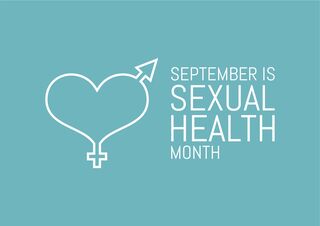Sex
The Important Intersection of Mental and Sexual Health
Too many therapists remain uneducated about sexual pleasure and health.
Posted September 5, 2022 Reviewed by Davia Sills
Key points
- Everyone has their own individual sexual orientation and erotic orientation.
- Talking about sexuality—especially pleasure—remains taboo, or at least uncomfortable.
- Some therapists lack training in how to talk to clients about sexual concerns without shame or judgment, but they can learn.
“When it comes to sex, the most uncomfortable people in the room are those who have all the power.” —Sex therapist, Doug Braun-Harvey

September is sexual health awareness month. This article is about consensual sexuality and how a lack of therapist training can be harmful to clients.
There’s a long-running joke among sex therapists, and it goes like this:
Client: “Doctor, you know there are just some things I don’t tell you.”
Doctor: “And I want you to know, Mr. So-and-So, that I really appreciate that.”
Unfortunately, the joke reveals a lot about our culture. There are therapists who, in their training, were never taught about working with clients on sexual issues. Why? Because in our culture, we are quite uncomfortable talking about sex, and that includes mental health professionals. When the topic of sex comes up in a therapy session, many therapists begin to squirm and quickly move the conversation to something else, like what sexual health looks like from their point of view, not the client’s perspective. The conversation rarely involves the inclusion of erotic pleasure.
From my point of view, as someone who has trained in and practiced sex therapy for more than three decades, this is a tragedy because it fails to acknowledge sex, sexual identity, and eroticism as central to someone’s mental health and general well-being. The irony here is that sex is central to every person’s life—whether you’re a couple or an individual, celibate or non-sexual, abstinent all the way to hypersexual, or just have a high sex drive.
Sexuality is a major part of clients’ inner lives and needs to be addressed.
Because talking about sexuality—especially pleasure—remains taboo, or at least uncomfortable, for the most part, the mental health field has consciously or unconsciously locked information about sexual health out of its training and teachings. Only in the last few years have some clinicians begun to bring the two together. For those therapists untrained in the importance of bringing sexuality into the therapy room, their clients are not being served well.
Sadly, even those in the medical field, including gynecologists and urologists, are not trained in sexual health or pleasure.
Why is talking about sexuality so difficult for many therapists? In many cases, it’s because they are uncomfortable with their own sexuality. Most mental health therapists haven’t done the hard work of looking at their own sexual feelings, their own sexuality, their own sexual history, their own sexual abuse, and their own judgments. They have unexamined biases about what erotica should be or look like. To address a client’s sexual nature, for instance, the therapist must learn to manage their own disgust response. This requires training in how to maintain an unconditional attitude in the face of information that is personally challenging.
In other words, the idea is to protect clients from us and our own material around sexuality, to help the client get it right for them, and explore their erotic thumbprint. Do they have sex for procreation, relational, or recreational reasons? What’s the therapist’s code? What is each partner’s code? The therapist must really give the client permission to understand that everybody has their own way when it comes to their sexual and erotic identity.
Understanding the nuances:
Healthy sex versus sexual health
Words matter. In sex therapy, for instance, we don’t say “healthy sex” because that implies there is unhealthy sex, and it becomes binary. None of this has anything to do with non-consent. That isn’t even about sex: It’s about power and control and taking away someone’s agency.
In sex therapy, we use the term “sex-positive.” This is not like “anything goes.” It’s about how you become positive and allow your client to have permission to know their own idea of what their erotic and sexual health is, not automatically pathologizing someone’s sexual and erotic interests. You want to go from trauma to triumph. You can’t help a client triumph over sexual trauma as a therapist if you don’t know what sexual health looks like for the client.
Sexual orientation versus erotic orientation
The first thing to know is that there’s a difference between sexual orientation and erotic orientation. Sexual orientation is who we’re attracted to, while erotic orientation is what we get off on—our fantasies, our turn-ons, etc. And just because we have a sexual identity doesn’t mean that our fantasies are all going to line up. Just because you identify as a straight man doesn’t mean your preferences, behavior, and fantasies are all toward women. They might include some men. For straight women, it might include some women. For gay men, too, it might include some women, and the same is true for lesbians.
We must really look at people who come in holding some shame and low self-esteem—“I’m damaged goods. What’s wrong with me?” Because our culture doesn’t talk about sex, clients come with depression, anxiety, and shame, not knowing the difference between sexual orientation and erotic orientation. And they don’t want to waste their valuable time teaching their therapist about sex. They don’t want to justify or legitimize. What they do want is safety, health, and well-being.
The words we use are important.
“Sexual health” should be the first words we learn to say. For more than 20 years, I was a sex addiction therapist, and there was no training at all around sexual health. I helped clients understand what their traumas and out-of-control behaviors were, but I wasn’t able to help them understand what sexual health meant. I have since rejected much of what I learned as a sex addiction therapist since it did not help me work with clients on sexual pleasure and was not sex-positive.
By changing the words that we use when talking about sex, we can help shift someone’s self-perception about their desires and their erotic orientation. For instance, we can talk about sex work instead of the loaded word “prostitution.” Too often, therapists are uncomfortable about work centered around sex, and so they go right to calling it exploitative. If it is exploitative, one should say that. If it’s underage sex work or migrant sex work, say that. If it’s human trafficking, say that. But we all need to make room for lots of sex work, perhaps most sex work, that doesn’t include these things. Again, consensual sex is not exploitative.
Instead of saying “pornography,” we can talk about sexual imagery in the field, such as erotic media, sexually explicit material, erotica, and so on. Many women, for instance, masturbate because they are turned on by explicit romance novels. People in that field often call this “cliterature.” There should be no shaming in this. We need to get away from this kind of harmful thinking.
I also must make the point here that porn is not the problem. Lots of good research shows that the problem is porn illiteracy. That is, porn stars are actors and usually more generously endowed than regular folks, and thinking that what one is seeing on screen is real, that this is how sex is supposed to look, can be harmful. Instead of saying someone is using porn, we say they are watching porn. And being into “kink” is not a diagnosis. People in the mental health field automatically think that if you’re into kink, you must’ve had some kind of bad childhood or trauma. It might be true, but not for someone who’s been vanilla. Sex therapists know the research on kink as its own erotic orientation, and some people have their own erotic identities around this.
For the LGBTQ+ community, we never call it an “alternative lifestyle.” Instead, we say “community.” “Alternative lifestyles,” on the other hand, can be used for swingers, kink, fetish, and BDSM. When speaking about monogamy, non-monogamy, and polyamory, most therapists see all of this as sexualized, as cheating. Cheating, however, is when there is a break in the agreement, not just having an open relationship. Most people who do have open relationships have lots of agreements, dialogue, and discussion. When someone tells me they’re monogamous, I ask them, “Have you negotiated your monogamy?” They may not have and don’t think they have to, but the truth is they do. The agreements must be made clear.
The key here is that you really want to help the client get rid of shame, rid of the mental health fight that they’re having, the struggle they’re having around their sexuality, and help them embrace who they are, what they are, what they’re into. The most important quote I’ve learned as a sex therapist and a mental health therapist is, “If you go to war with your sexuality, you will lose and end up in more trouble than before you started.
The fact that increasingly more therapists are seeing that mental health and sexual health should go hand in hand is a hopeful development.
References
Goerlich, Stefani, (2021) The Leather Couch: Clinical Practice with Kinky Clients, Routledge Publishing
Buehler, Stephanie, (2022) What Every Mental Health Professional Needs to Know About Sex, Third Edition, Springer Publishing




